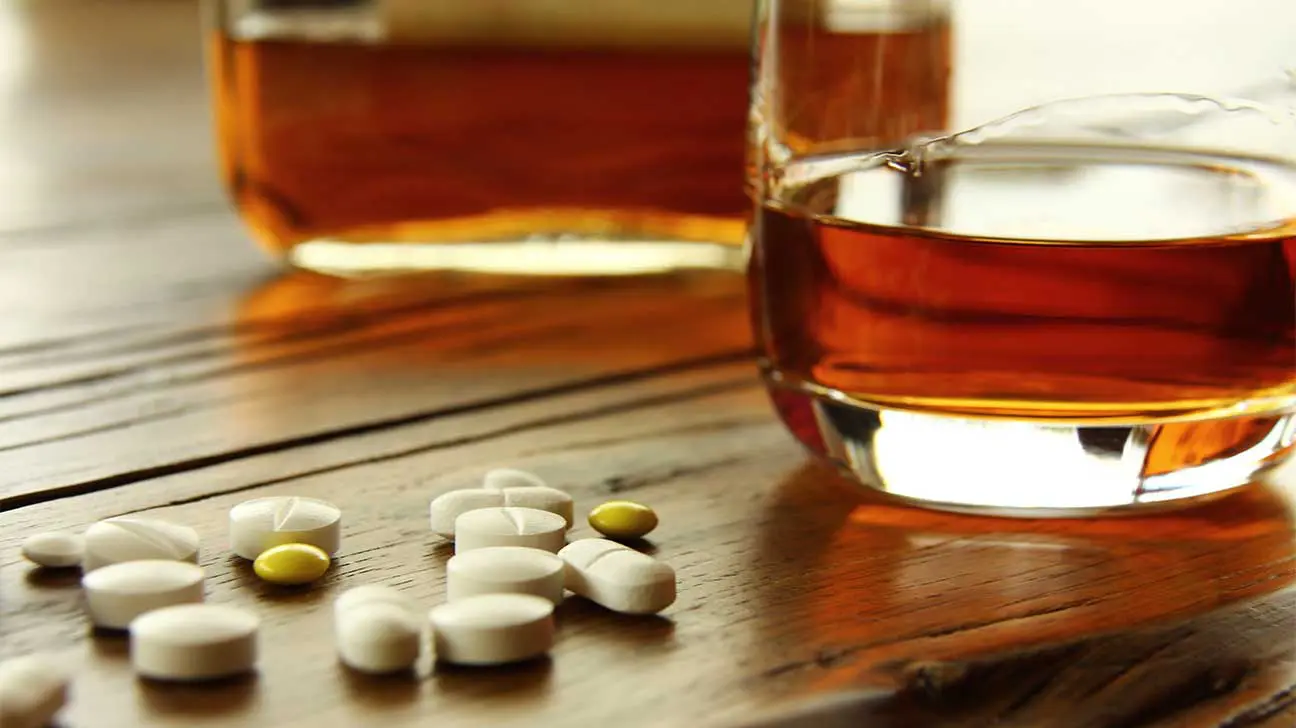
Research has shown that those who have an addiction to alcohol are 18 times more likely to abuse prescription medications. Usually, this is part of a polydrug abuse problem that includes medications that either intensify or relieve the effects of alcohol on the body.
Anyone with an addiction to either Vyvanse or alcohol should learn the facts about the effects and dangers of mixing Vyvanse and alcohol.
Is It Safe To Mix Vyvanse And Alcohol?
Vyvanse is a medication that is most often prescribed for the treatment of a condition called attention-deficit/hyperactivity disorder (ADHD). Unlike some other ADHD medications, it only has to be taken once a day because it is designed to slowly dissolve in the stomach over an extended period of time.
When it hits the bloodstream, the body converts it into dextroamphetamine, which is a central nervous system stimulant. Alcohol is a central nervous system depressant, though. This means that alcohol has an effect on the body that is opposite that of Vyvanse.
Combining Vyvanse with alcohol causes severe stress on the central nervous system because it is being pushed and pulled in two different directions. Because of this, doctors do not consider mixing Vyvanse and alcohol to be safe.
What Are The Effects Of Mixing Vyvanse And Alcohol?
When a central nervous system stimulant (Vyvanse) and a central nervous system depressant (alcohol) are combined, they each reduce some of the effects of the other substance. In this particular combination, alcohol reduces the anxiety and insomnia that Vyvanse can cause.
In turn, Vyvanse minimizes the fatigue and confusion that comes with drinking too many alcoholic beverages. At first, this might sound like a positive scenario because it seems like the substances are balancing each other out. Yet mixing the drugs can have a number of side effects.
Some of the adverse effects of mixing Vyvanse and alcohol include:
- alternating high and low blood pressure
- irritability
- fatigue
- aggression
- chest pains
- memory problems
- confusion
- hallucinations and delusions
- dry mouth
- paranoia
- restlessness
- tachycardia
- stroke
- heart attack
- seizures
- overdose
Side Effects Of Vyvanse Abuse
The following side effects of Vyvanse are caused by the way the medication increases the central nervous system response of the body, while also affecting some of the neurochemicals in the brain:
- weight loss
- dry mouth
- nausea and vomiting
- diarrhea
- dizziness
- sweating
- anxiety
- psychosis
- restlessness
- headaches
- insomnia
- trouble breathing
- serotonin syndrome
- development of a new mental illness in someone who never had one before
Side Effects Of Alcohol Abuse
The following side effects of alcohol occur when a person has consumed several alcoholic beverages within a short period of time because the body isn’t able to metabolize the liquid fast enough:
- confusion
- memory problems
- frequent urination
- diarrhea
- vomiting
- impaired judgment
- slurred speech
- fatigue
- loss of consciousness
Dangers Of Mixing Vyvanse And Alcohol
The dangers of mixing Vyvanse and alcohol are serious because of the way that both substances affect the heart. Vyvanse makes the heart work harder, and alcohol slows it down. This severely stresses the organ, which can lead to a person having a heart attack.
Some of the other Vyvanse and alcohol side effects occur because alcohol sometimes intensifies the effects of Vyvanse in those who are not used to taking amphetamines. This can ultimately lead to the person developing sudden personality changes and mood swings.
It is also important to mention that Vyvanse is sometimes prescribed to people who have a binge eating disorder because it helps reduce their appetite. There is a chance that a person could end up suffering from severe anorexia if they misuse this medication.
Developing Addiction And Dependence
Those who want to know the effects of mixing Vyvanse and alcohol should understand that any time two substances are used together for nonmedical reasons, it increases the chances of a person either developing an addiction or becoming physically dependent on them.
Dependence on Vyvanse or alcohol is especially dangerous because it means that a person will experience severe withdrawal symptoms if they attempt to stop taking either of them. Usually, physical dependence on a substance occurs after someone has already become addicted to it.
Increased Risk Of Overdose
Vyvanse and alcohol interactions can include the risk of an overdose occurring because there is a chance that a person will take too much of one of the substances in an attempt to decrease the effects of the other substance.
Unfortunately, an overdose from this particular combination is very hard to treat because there are no medications to counteract the effects of both substances at the same time. The risk of death is higher than it would be if just one substance was being used.
How To Find Treatment For Polydrug Abuse
Treatment for polydrug abuse is important because it will help prevent dangerous Vyvanse and alcohol interactions that could lead to an overdose. It can also decrease the risk of a person developing a serious physical or mental illness from the long-term damage that this combination can do to the brain and body.
Those who need help finding a drug and alcohol rehabilitation center that can treat Vyvanse or alcohol addiction should be sure to contact one of our treatment representatives today.
Addiction Resource aims to provide only the most current, accurate information in regards to addiction and addiction treatment, which means we only reference the most credible sources available.
These include peer-reviewed journals, government entities and academic institutions, and leaders in addiction healthcare and advocacy. Learn more about how we safeguard our content by viewing our editorial policy.
- National Institute on Alcohol Abuse and Alcoholism — Alcohol’s Effects on the Body
https://www.niaaa.nih.gov/alcohols-effects-body - U.S. National Library of Medicine: MedlinePlus — Lisdexamfetamine
https://medlineplus.gov/druginfo/meds/a607047.html#brand-name-1


